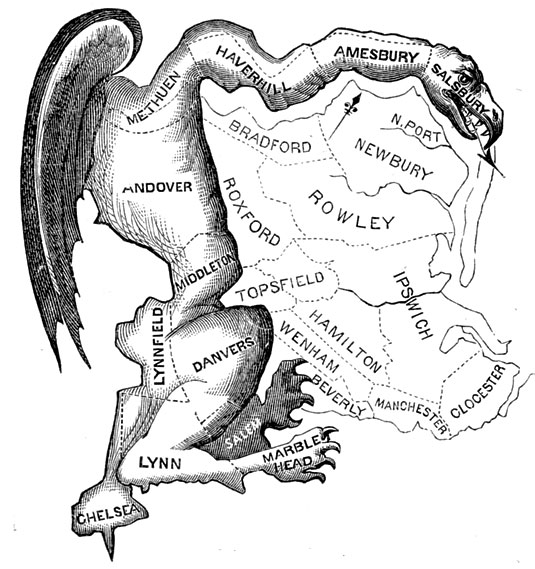Published December 21, 2010
Massachusetts will lose a congressional seat, trimming the state’s U.S. House delegation from 10 to nine, according to new U.S. Census figures released today.

Redistricting has a colorful history here. After Gov. Elbridge Gerry's redistricting attempts, Elkanah Tisdale published this cartoon in 1812, which created the term "gerrymander." (Wikimedia)
The Massachusetts population grew from 2000 to 2010 (by about 3 percent), but not as much as many other states. That follows decades of population patterns. State population figures dictate how the nation allocates all 435 House districts to the states.
In 2000, the state barely held on to its 10th congressional seat. Most observers predicted we would lose a seat this time around.
The new census numbers hamper a well-tenured and powerful delegation in Congress and raise unique political questions ahead of 2012. “Losing a seat means losing political clout,” said the New England Council’s Jim Brett on Morning Edition today. “That’s not good news for Massachusetts.”
The Legislature is now tasked with redistricting — or redrawing the state map with nine districts — setting up new electoral questions and match-ups in 2012 as two incumbents are forced into the same district.
Reps. John Olver, of the 1st District, and Richie Neal, of the 2nd, have already announced their 2012 re-election bids, possibly to avoid getting forced out of the delegation. Others, including Reps. Mike Capuano, of the 8th, and Stephen Lynch, of the 9th, have been mentioned as possible challengers to Sen. Scott Brown in 2012.
Over the past 100 years, Massachusetts has consistently lost seats — moving down from a high of 16 seats last held in 1920. All other New England states will have no changes to their seat counts.
The population count also determines state share of billions of dollars in annual federal funding.
More coverage:
Earlier Mass. coverage: